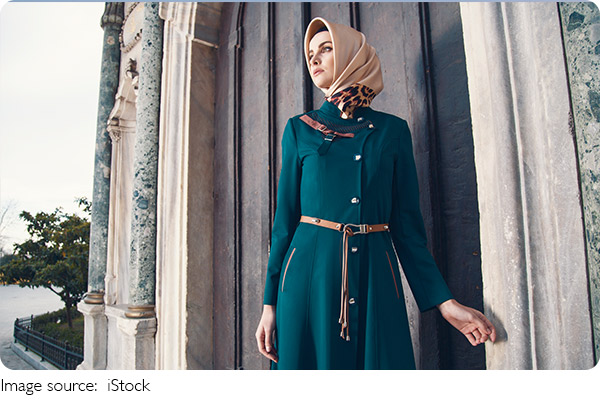Fashion and Life

Have you ever stopped to think about how much our clothing choices impact our daily lives? Fashion is often seen as a form of self-expression, but its influence stretches far beyond just personal style.
It affects the way we feel, how others perceive us, and even how we interact in our relationships.
From the first impression to the subtle cues we send through our wardrobe, fashion plays a much larger role in our lives than we may realize.
So, how exactly does fashion shape our world?
Fashion Shapes Our Identity
We all know that clothing is a powerful form of self-expression. What we wear speaks volumes about our personality, preferences, and values. Whether we're dressing for work, a casual outing, or a special occasion, the choices we make reflect who we are at that moment. This is especially true when we consider the rising importance of personal brands in today's social media-driven world.
Many of us curate our wardrobes with the intent of projecting a specific image—be it professional, artistic, or casual chic.
Fashion also plays a significant role in the way we navigate cultural and social expectations. For instance, certain garments and styles may signal professionalism, while others might be seen as more laid-back or creative. In a sense, fashion allows us to build and present our identity to the world in a way that feels authentic to us.
The Influence of Fashion on Confidence
One of the most immediate effects fashion has on our daily life is how it impacts our confidence. Think about how you feel when you wear something you love—it often boosts our self-esteem and makes us feel more comfortable in our own skin. On the flip side, wearing something we're unsure about or uncomfortable in can affect our mood and self-perception.
This is why we often hear people talk about "dressing for success"—when we put on clothing that makes us feel confident, we're more likely to project that positive energy to those around us. A well-put-together outfit can elevate our mood, making us feel ready to take on the day. Conversely, when we feel uncomfortable in our clothes, it can create a barrier between us and others, leading to self-doubt and hesitation in social situations.
Fashion as a Social Connector
Fashion doesn't just influence us individually; it also affects the way we connect with others. Our clothing choices can serve as a conversation starter or a way to bond with like-minded people. For example, wearing a band t-shirt at a concert can spark a conversation with someone who shares your love for that music. Similarly, sporting a designer brand may lead to discussions about fashion trends or personal style.
In many ways, fashion is a language of its own—a non-verbal way to communicate with the world around us. It can tell others where we come from, what we're passionate about, and even our values. This ability to connect and communicate through style makes fashion an essential social tool, helping us build relationships both personally and professionally.
Fashion's Impact on Relationships
Our clothing choices can also influence the dynamics of our personal relationships. Think about how we dress for a date or when meeting new people. Often, we choose outfits that we think will impress or align with the other person's style. In romantic relationships, this might mean wearing something that makes us feel attractive or confident.
In friendships, it might involve choosing outfits that reflect common interests or cultural backgrounds.
Fashion can also play a role in how we present ourselves in family and professional settings. For example, certain work environments might require more formal attire, while others may have a more casual dress code.
In family settings, we might dress more comfortably and casually, reflecting our intimate relationships with loved ones. These small yet significant choices help define the roles we play within different circles, showing how fashion affects our interactions with others.

The Role of Fashion in Professional Life
In the professional world, fashion can be a powerful tool for shaping the way we're perceived by colleagues and superiors. Studies have shown that the way we dress can influence our success in the workplace. For example, dressing in a polished and professional manner can signal that we are serious, responsible, and ready for leadership roles.
Conversely, more casual attire might signal creativity or a laid-back attitude, but it may not always be seen as appropriate for certain high-level positions.
What we wear to interviews, meetings, or even day-to-day at work can affect how seriously others take us. Fashion in the workplace helps establish authority, respect, and competence, playing a subtle yet significant role in our career advancement.
Conclusion: Fashion's Ever-Present Influence
Fashion is so much more than just clothing—it's an essential part of who we are and how we navigate the world. From influencing our self-confidence to shaping the way we connect with others, our wardrobe choices carry deeper meanings than we might initially think. Whether it's enhancing our identity, boosting our confidence, or helping us bond with others, fashion plays a key role in our everyday lives.
So, next time we pick out an outfit, let's remember the power it has—not only in how we present ourselves, but in how it impacts the world around us. After all, fashion isn't just about looking good; it's about feeling good and building meaningful connections. How do you think fashion influences your relationships and daily life? Share your thoughts in the comments below!
-
 Bees' Vital RoleExplore why bees and other pollinators are essential for food security and ecological balance across the globe.
Bees' Vital RoleExplore why bees and other pollinators are essential for food security and ecological balance across the globe. -
 Birds' Migration SecretsHow do birds find their way during migration? We explore how they use natural signals like Earth's magnetic field and the sun.
Birds' Migration SecretsHow do birds find their way during migration? We explore how they use natural signals like Earth's magnetic field and the sun. -
 Stomach Cancer: Early Signs!Could You Miss The First Clues Of Stomach Cancer? Shocking Symptoms You Might Overlook?!
Stomach Cancer: Early Signs!Could You Miss The First Clues Of Stomach Cancer? Shocking Symptoms You Might Overlook?!